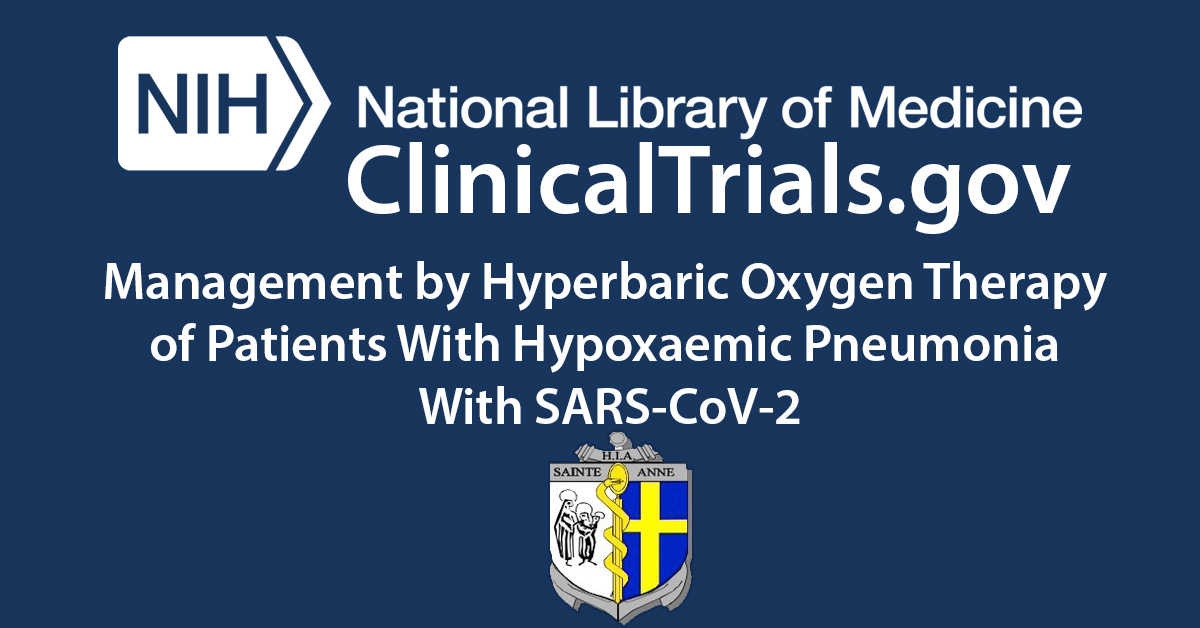
Jean-Eric Blatteau, MD, PhD of Sainte Anne Military Teaching Hospital in Toulon, France has begun a new clinical trial to study the treatment of COVID-19 patients using Hyperbaric Oxygen Therapy.
Several patients with hypoxaemic SARS-CoV2 pneumonia were able to benefit from oxygen treatment (HBOT) in China. In a clinical case published in the Chinese journal of hyperbaric medicine, treatment with repeated HBO sessions prevented admission to intensive care unit with mechanical ventilation in a patient aged 69 who presented with signs of respiratory decompensation. HBOT is the most powerful oxygenation modality in the body today. HBOT can dramatically increase the amount of dissolved oxygen in the blood. HBOT not only promotes blood transport but also its tissue delivery. Furthermore, HBOT has specific immunomodulatory properties, both humoral and cellular, making it possible, for example, to reduce the intensity of the inflammatory response and to stimulate antioxidant defenses by repeating sessions. A virucidal capacity of HBOT might also be involved. HBOT is generally regarded as safe with very few adverse events.
Following this feedback, it is proposed in the context of crisis management related to SARS-CoV2 to assess the value of HBO treatment of patients with CoV2 pneumonia. Indeed, it seems essential to propose therapeutic strategies to limit the risk of respiratory decompensation requiring admission to intensive care unit for patients with SARS-CoV2 pneumonia.
The main objective of this study is to assess the effectiveness of HBOT in addition to normal management over the period of normalization of the oxygen requirement (oxygen dependence) in patients with SAR-CoV2 pneumonia not requiring invasive or non-invasive ventilation. It is a prospective, interventional, multicentre, controlled, randomized study. Patients admitted for SARS-CoV2 pneumonia in the Covid sector of the hospital, who have oxygen-dependence criteria will be proposed for inclusion in accordance with the inclusion and non-inclusion criteria. Randomization will be carried out to determine the allocation in two groups: an HBO group which will perform a daily session after checking for the absence of contraindication to HBO and a non-HBO control group with the same clinical criteria, but who will not benefit from HBOT sessions. In both groups, the standard continuous treatment with normobaric oxygen will be maintained.
For more on the trial and eligibility requirements, visit: https://clinicaltrials.gov/ct2/show/NCT04344431
